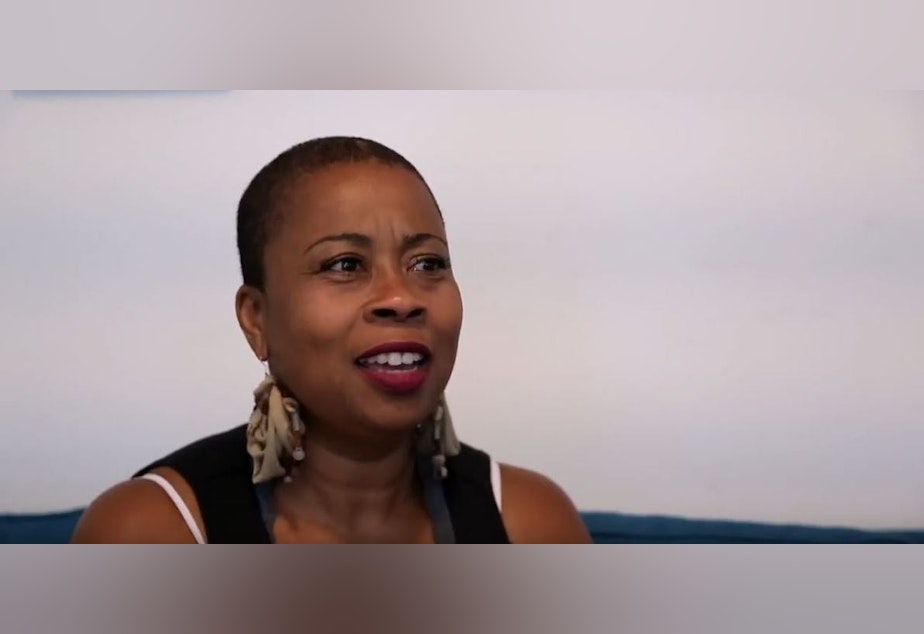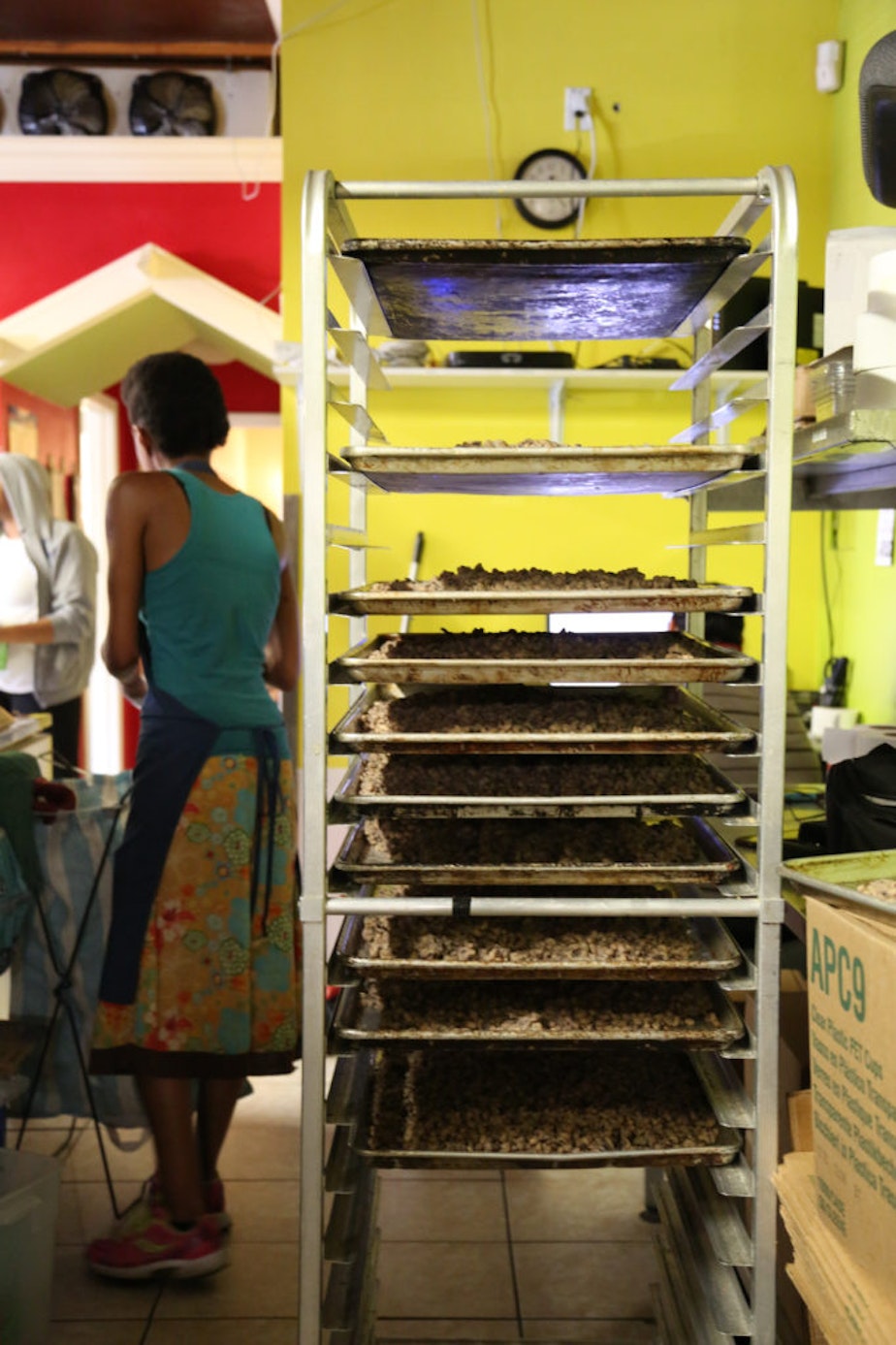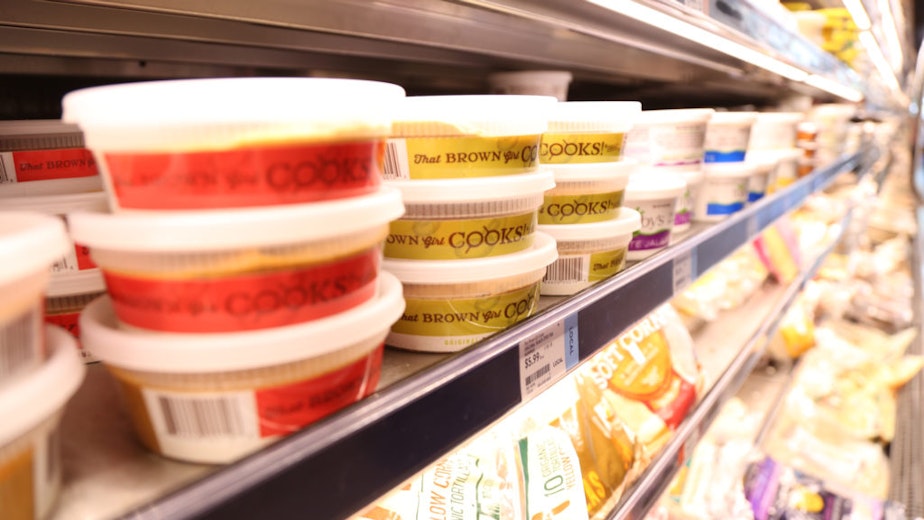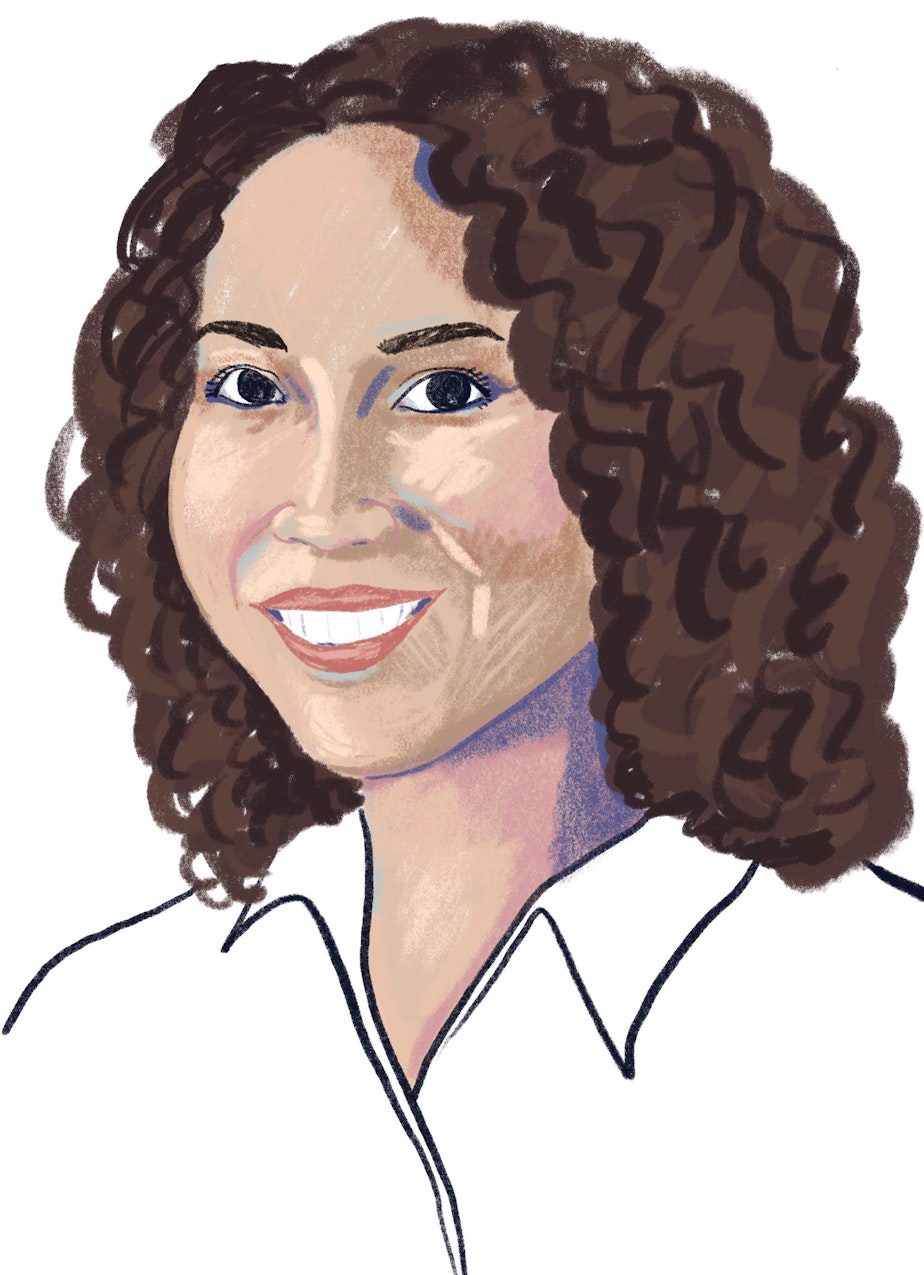That brown girl cooks – and makes her name in the food business

Kristi Brown thinks the world would be much better place if we all had more sex. Short of that, she believes the next best thing is food.
“Food is everything. It nourishes. It destroys. It builds countries and communities. It is so powerful.”
After graduating from culinary school, Brown was often the only black woman in the restaurant kitchens where she worked. At times, it was tough.
She found herself making salads, when she really wanted to be behind the stove.
“It feels like sometimes you have to choose what’s going to be your deficit. Is it that you’re black? Is it that you’re a woman? And then when you put them together, I think the reality of that is too hard to face when I want to stay focused,” she said.
That changed when she pursued her own small business.
In the 1990s, she started That Brown Girl Caters. She closed in 2009 after her mother’s death and the birth of her third child.
In 2012, Brown started That Brown Girl Cooks! It’s a catering company that serves internationally inspired soul food and also sells a black-eyed pea hummus of her own creation in grocery stores throughout Seattle.
But when she went looking for money to expand, she didn’t turn to a bank.
“Banks are not really interested in loaning money, I don’t think, to small businesses in the space that I’m in,” she said.

Traditionally, banks rely on credit scores and require collateral, such as a house, when making loans. But Brown was renting an apartment when she sought funding. Banks also tend to give out larger loans, not the smaller amount that she was seeking.
So Brown ended up looking to local sources, and sought a loan from the Rainier Valley Community Fund. The fund is focused on supporting neighborhood businesses. It’s made $59 million in loans since 2006.
“Banks are heavily regulated. Ever since the last banking meltdown they’ve been more conservative about needing everything to fit within their lending parameters,” said Rainier Valley Community Fund Executive Director Wayne Lau.

While banks rely on credit scores to vet potential borrowers, the community fund is able to look at other factors, according to Lau.
“We also look at the individual’s reputation in their particular community. If they don’t have any credit history, all we can do is evaluate how they handle other types of obligations, even if they’re a renter. If they pay their rent on time or they pay their utility bills on time.”
But credit and collateral aren’t the only obstacles for a small business owner like Brown.
According to the U.S. Census Bureau’s Annual Survey of Entrepreneurs, about 23 percent of small businesses in the Seattle-Tacoma-Bellevue metropolitan area are owned by women. Only about 4.5 percent of businesses have black owners.
The city’s rapid pace of development has driven up prices and made it tough for all small business owners.
But according to Seattle City Councilmember Teresa Mosqueda, women business owners face their own set of challenges.
“This is the most expensive city in the country to have childcare. And if you’re a woman and you’re wanting to start your own business, the cost of child care and the inaccessibility is truly a barrier,” said Mosqueda, who is a member of the city’s Small Business Advisory Council.
But the city benefits from helping women and people of color move into small businesses, said Mosqueda.
“When you think about folks who have historically been left out of thriving economies. It’s women. It’s people of color. It’s low-wage workers. When we create more economic opportunities for people to start their own business, to be economically stable, it creates good living wage jobs for others and it creates more economic activity,” she said.

With the loan Brown received from the Rainier Valley Community Fund, she has been able to expand her business to including bartending at events. In the future, she hopes to open a restaurant.
For Brown, cooking is more than just a business. It’s given her the freedom to be herself.
“I don’t really need to set myself up to measure up to other people’s standards. I really just have to go for the gold and I have to give myself permission to say ‘It’s OK to have this self expression,” she said. “It’s OK to call yourself ‘That Brown Girl.’ Sure, it makes mostly white women feel uncomfortable. But guess what? It’s my name, boo.”

This story was produced by Samantha Guzman as part of the Next Generation Radio Project, a week-long digital journalism training project designed to give competitively selected participants, who are interested in radio and journalism, the skills and opportunity to report and produce their own multimedia story. Those chosen for the project are paired with a professional journalist who serves as their mentor. KUOW hosted the project in July 2018.

